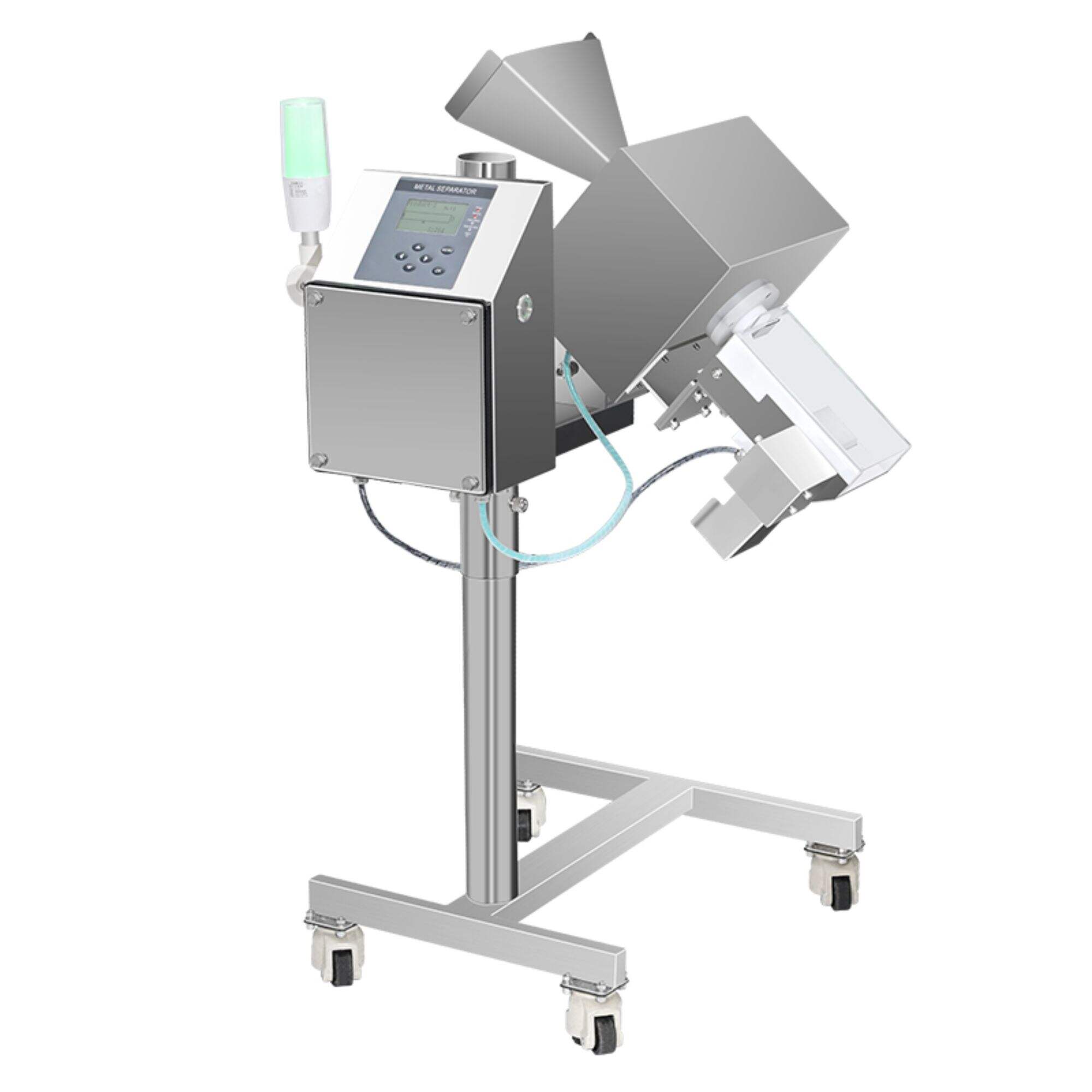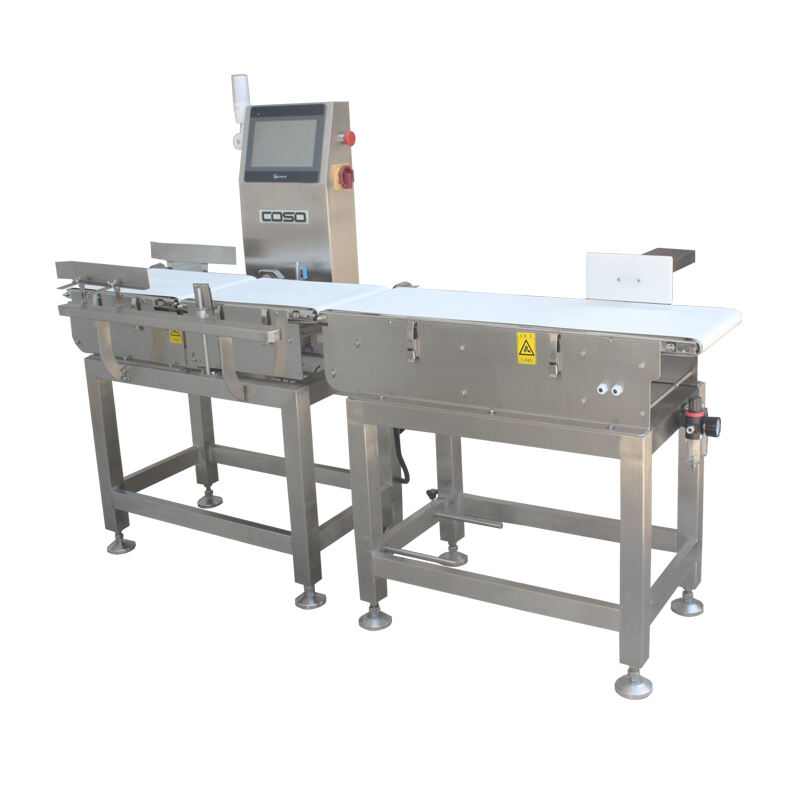A metal detector is an instrument which detects metals. Metal detectors are used by several businesses, though they are more prevalent in food industry. Metal detectors — these are used in this industry to locate and remove metal components which may inadvertently find their way into the food. This is very necessary because if the food contains metal species, it could be fatal for people to eat the food. As an example, if swallowed, little bits of metal may injure a person's mouth or throat. This is exactly why the metal detectors are such an important part of keeping food safe for people.
There are a number of factors that will affect the price of a food metal detector. Size is one of the most determinant factors on how much the metal detector will cost. Larger metal detectors are typically used for bigger duties which is why they typically come with a higher price tag compared to a smaller metal detector. Metal detector sensitivity is another essential point. More sensitivity means that the metal detector is capable of detecting each and every bit of the metal. More sensitive metal detectors can find smaller metal objects, and thus they also tend to cost more than less sensitive counterparts.
There are all kinds, all metal detectors. Metal detectors have many applications in the food industry, from bread, meat products, milk, fruits to vegetables. This is why metal detectors are extremely significant as it ensures optimal safety of the food we eat. Metal in food can injure you severely or it can also lead you to a serious crunch. And that is why we need foresight metal detectors within the food industry. They protect humans against harm and protect the food we eat.

There are so many reasons that determine how much a metal detector will cost. One is that the metal detector may be very sensitive. More sensitive detectors will detect smaller bits of metal, and are usually more expensive, as discussed above. One other factor which makes the metal detector prices different from each other is its size. As a result, larger detectors tend to be more high-end and expensive as they may cater one to larger jobs better. The value of the metal detector is another major focus. Metals made of quality materials are usually a bit higher in price than those made of lesser materials. Better quality typically means they will hold up better and perform better.

There are plenty of cheap metal detectors out there for food. But they also need to consider whether or not it's worth investing. A less sensitive detector will not be able to find all the metal objects, which is something you can expect if you buy a really cheap one, as cheap metal detectors are not as sensitive as more expensive ones. This is a huge issue as it can result in selling unhygienic food. Cheap metal detectors may also be made with not so great materials, meaning they may break, or stop working, before better ones do. Hence all these things need to be thought-off before making the decision of purchasing a low-cost food metal detector.

You ever notice how other companies do the metal detector pricing? If you buy in bulk (in quantities of 4 or more, generally), some companies will offer a discount. This could lead to signifricant savings for businesses that require multiple units for their operation. Some companies offer financing to assist in making the detector a little more manageable. That means you get to pay for it bit by bit instead of all at once. Certain will also offer warranties inside the form of assurance which is a promise to come back and restore or replace the metal detector in the event that they do no longer work as they're imagined to. They may also offer maintenance programs to help you maintain your metal detector in its best working condition. A lot of these considerations must occur in selecting the appropriate metal detector for the food sector.
Dongguan Coso Electronic Tech Co., Ltd has been producing electronic products since. Our factory is spread over 4000 square metres. We have more than 18 years expertise in the manufacture of different kinds of metal detectors such as conveyor metal detectors and free-fall metal detectors, and checkweigher machine meet the demands of our customers. Coso's engineering and design team can provide fast solutions for customers. Our equipment is in simple operation and have high sensitivity. We offer a single-stop purchasing service for a variety of products, including metal detectors, checkweighers, metal separators and X-ray inspection equipment. We also have a comprehensive after-sales team that can help solve issues with customers.
Dongguan Coso Electronic Tech Co., Ltd a professional manufacturer from 2005, have more than 18 years of experience producing various kinds metal detectors check weigher machines depending on the needs customers. we have own engineer teams to provide suitable solutions customers quickly. can easily modify conveyor belt metal detector for food industry priceand the width of the belt from floor to belt also any type of rejection system to suit the needs the customer. More than 80 countries trading with our machines.
Dongguan Coso Electronic Tech Co., Ltd is professional manufacturer, established in 2005. We can offer solutions that are professional to meet the requirements of our customers at competitive cost. Our experienced design and engineering team allows us customize machines according the customer's budget and specifications. Our employees are also highly experienced and certified, which ensures the high-quality of our machines and on-time delivery. Before delivery, each machine will undergo a quality check. Our machines have low cost of usage and maintenance. All machines come with 1 year warranty and no spare parts are available within the warranty period. Also, our machines come with CE certificates and are exported to over 80 countries around the globe.
Dongguan Coso metal detector for food industry priceTech Co., Ltd is a professional manufacturer since 2005 Metal detectors from is highly sensitive and high-quality. machine is easy operate due its the modular design as well as user-friendly HMI. To train customers on how to operate the machines we'll provide them with manuals for operation and videos. machines come with a 1-year warranty, and spare parts readily available no cost. If machine fails can be fixed replacing the spare part.


